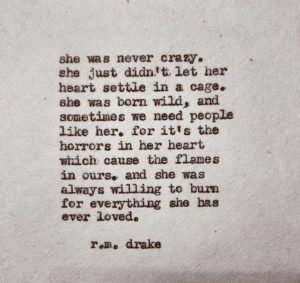“If you really believe that, then you should go back to the United Pentecostal Church.” Did I say that? Yes, I really said that to a friend. There was a time I wouldn’t have considered it.
Earlier on, after leaving my former church, there would be times that a friend, or someone I knew online, would return to their former unhealthy group. It used to upset and puzzle me, but that changed after awhile as I gained more knowledge. Being upset was replaced with the realization that some people need to return for a period of time, in order to remember why they left in the first place.
This even happened to one lady, who during her time back in the UPC, wrote a book about returning to them. It was an attempt to help bring in the ‘backsliders.’ She worked in her then-husband’s ministry to get people to return. Then she left again, with no intention of ever returning. We were able to get together once after she left.
There are different reasons people return to an unhealthy church. They may have left before being fully persuaded in their own mind that it was abusive, unhealthy and/or that error was being taught. They may return due to fear. Sometimes the pull from family/friends and the desire for their acceptance is overwhelming. In this post I wish to concentrate on one aspect.
My focus today is what can happen when some time has gone by after exiting. The one who left may start having nostalgic feelings or may be craving the fellowship and excitement they had in their former church. They may not have gained many new friendships since their exit or they may not have found a new church to attend. During this time, they sometimes temporarily forget why they left, or may downplay the reasons, or the other feelings seem so strong that they convince themselves things will be different this time. They may even be fighting the ‘what if they are right’ thoughts.
During a time like this, it isn’t good to make decisions based on emotions or longings for the past. But sometimes it happens and the person finds themselves back at their former church or another in the same organization. They receive lots of attention, hugs, welcome backs and invitations of fellowship. Things feel sooo good! But as time goes on, and the initial love bombing subsides, they start to see once again why they left in the first place…and at times even see and experience worse things. They walk away once more.
If someone you know returns to an unhealthy church or group, pray for them. Sometimes they simply need to be reminded of why they left. God is more than able to keep them and see them through this time in their life.
Leaving An Unhealthy Church #1: You and Those Who Remain
Leaving An Unhealthy Church #2: Anything You Say Can, And Will, Be Used Against You
Leaving An Unhealthy Church #3: Why It May Be Important To Resign Your Membership
Leaving An Unhealthy Church #4: Remaining in the Same Organization
Leaving An Unhealthy Church #5: Don’t Listen To The Gossip
Leaving an Unhealthy Church #6: How You Are Treated
Leaving an Unhealthy Church #7: It Happens To Ministers, Too
Leaving an Unhealthy Church #8: The Way Of The Transgressor Is Hard!
Leaving an Unhealthy Church #9: Some Must Return To Remember Why They Left
Leaving An Unhealthy Church #10: Sorting Through The Teachings
Leaving an Unhealthy Church #11: Confusion & Not Knowing Who or What to Believe
Leaving An Unhealthy Church #12: Can I Go To A Church Where I Don’t Agree With Everything?
Leaving An Unhealthy Church #13: A Warped View of God
Leaving An Unhealthy Church #14: Looking For A New Church Part 1
Leaving An Unhealthy Church #15: Looking For A New Church Part 2 (Leaving Your Comfort Zone)
Leaving An Unhealthy Church #16: Looking For A New Church Part 3 (Triggers)
Leaving An Unhealthy Church #17: Looking For A New Church Part 4 (Manifestations/Demonstrations)
Leaving An Unhealthy Church #18: Looking For A New Church Part 5 (Church Attendance: A Matter of Life or Death?)













